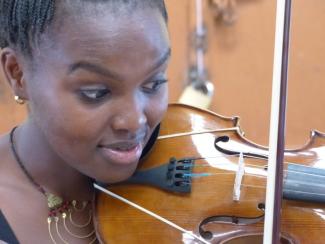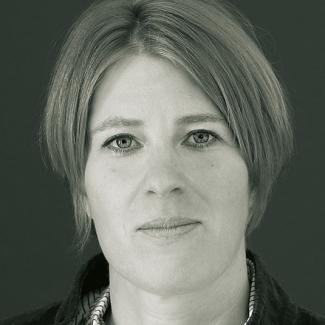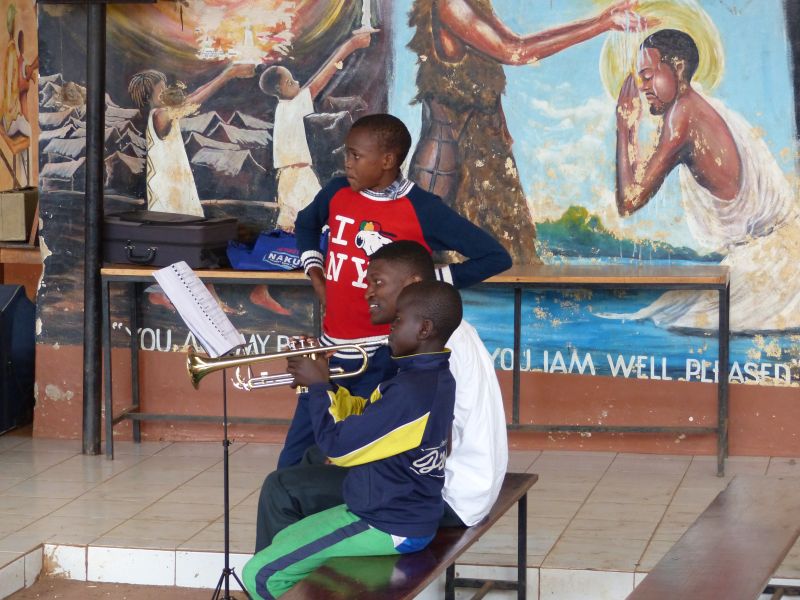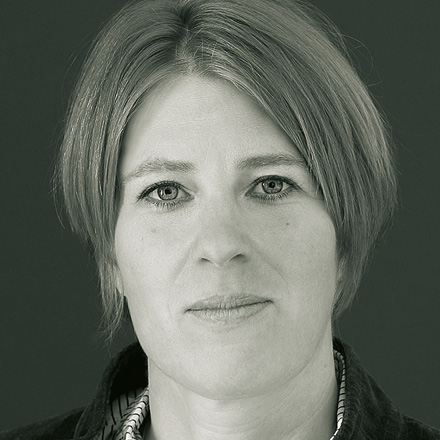Civil-society engagement
“Music is my friend”

What are the goals of the Art of Music Foundation?
We primarily work with young musicians, in particular those who would otherwise not have a chance to learn formal music. Learning music gives our members vital life skills such as discipline, focus, a culture of hard work and teamwork. Moreover, we provide them with a safe space away from the dangers of their informal settlement and open up their world by exposing them to life outside the slum. Academically, our members perform better than their peers. They also increasingly assume leadership roles in their schools and beyond. This is basically our focus.
It is unusual to start a youth orchestra in a slum settlement. How did the idea arise?
I have to say I didn’t know what I was getting myself into when Father Webootsa at St. John’s Catholic Church asked me to start teaching some of his kids music some years back. In 2008, I started Ghetto Classics, the orchestra, as you see it today. We started off with 14 kids, and now there are more than 650. I was young and foolish and believed I could do anything.
How did the people in Korogocho respond?
They were very sceptical at first – for obvious reasons! This is a community raised on Reggae and Genge, Kenyan Hip Hop. The people view most non-governmental organisations with suspicion. They think NGOs want to take advantage of them. Today, you can say that one of my greatest achievements is how much the local people now appreciate Ghetto Classics. It is now the strongest youth programme in the community, and ever more youngsters want to join. The kids are very protective of the programme themselves, making sure that our equipment is safe.
What is their background?
The members of Ghetto Classics come from extremely difficult backgrounds, and dealing with those issues is an integral part of our programme. You can not teach music to a child who is hungry, out of school, being abused, does not have a home … What we do is find partners who take care of the kids’ non-musical needs. Some members are highly talented musicians. Others seem not to be that gifted, but all are welcome. We are one big family.
What does the Art of Music Foundation provide the musicians with?
We offer structure, a safe space, a whole new family. We try to broaden members’ horizons and open their worlds so that they can have dreams of success. They are surrounded by poverty and despair. We try to provide them with skills to help them escape from this misery. We have seven members in university now, and we have employed eight members to teach younger ones music. We do the best we can to make sure that every member goes to school.
Do you have anyone in mind who grasped this opportunity with particular success?
Oh, there are a few. Brian Kepher, for example, was sleeping on the floor of a church six years ago, but this year he visited the Lausanne Conservatory with the hope of becoming a student there next year. And then there is Simon Ndung‘u, who was one of my first students and is now my manager on the ground. He will get very far. However, I haven’t got it right with the girls yet. So many drop out of the programme. The pressure to conform to what is expected of them by their society is so strong. Early sexual activity and motherhood are normal, and so many do not go beyond high school. It’s very frustrating and very sad.
What is the Foundation’s greatest challenge?
Our greatest challenge by far is resources. Money, instruments, staff – those challenges keep growing. Also, building a structure that can accommodate our growth. Everyone in our organisation is operating at at least 110 percent work time … On the other hand, we must not forget that kids’ lives are really hard. They face unbelievable challenges, and we have to find ways to help them so they find the strength to cope.
What does music mean to you personally?
I myself was lucky; I come from a pretty comfortable family. My university education was in Canada and the UK. That is where my love for classical music grew. I spent my spare time either studying voice or watching concerts. So music is my friend – it was and is always with me, in good and bad times. Becoming a musician was my dearest wish, but it was not an option in my family, unfortunately. So I just became a singing pharmacist.
What are your future plans and dreams?
I would like to see our programme grow to a point that we are accessible to as many needy children as possible. There are also middle class children whose parents do not see the point of spending their money on something as “frivolous” as music. I’d also like us to improve our musical standards. It would be wonderful if we could give very gifted children a good enough music education to compete with any child from the west. I dream of traveling with our kids. Performing on a great stage somewhere in the world. I dream of one day producing someone like Gustavo Dudamel, the famous Venezuelan conductor.
Elizabeth Wamuni Njoroge is the director of the Art of Music Foundation which runs Ghetto Classics and the National Youth Orchestra of Kenya.
http://www.artofmusic.co.ke/
Isabella Bauer a freelance journalist and consultant.
isabella.bauer@gmx.de










